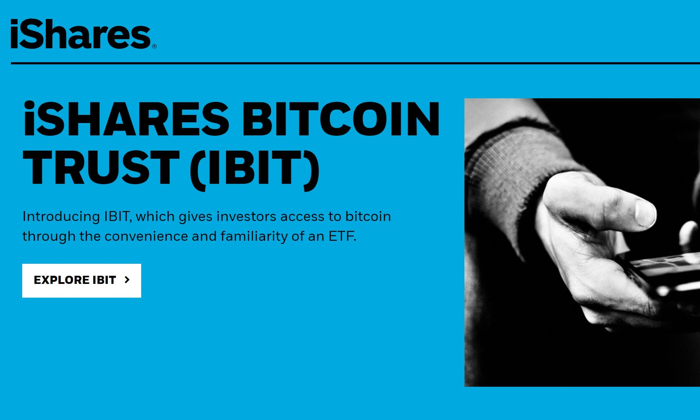In a significant case underscoring the pervasive threat of cyber fraud, the SEC X Account Hacker received a sentence of 14 months in prison for orchestrating an elaborate scheme intended to deceive investors regarding a Bitcoin ETF. Eric Council Jr., alongside his co-conspirators, exploited the SEC’s official X account to disseminate false claims that the long-anticipated spot Bitcoin exchange-traded fund had received approval. This act of cryptocurrency manipulation not only misinformed the public but also triggered significant market volatility—illustrating the dangerous intersection of cyber fraud and financial markets. News from the SEC and DOJ highlights the broader implications of such hacking incidents, marking a growing concern for regulators worldwide. As the cryptocurrency landscape evolves, so too does the need for heightened security measures to prevent incidents similar to the SEC X Account Hacker debacle.
In early 2024, a notorious manipulation case emerged as the SEC X Account Hacker was sentenced, shaking the foundations of investor trust in digital assets. The perpetrator, Eric Council Jr., committed cyber fraud by hijacking an official account to spread misinformation about the approval of a Bitcoin exchange-traded fund (ETF). His actions not only misled investors but also highlighted the vulnerabilities within regulatory bodies tasked with overseeing financial markets. This incident, connected to cryptocurrency fraud and similar illegal activities, has ignited discussions about the adequacy of current cybersecurity measures. As stakeholders in the financial world adapt, the unmasking of such schemes emphasizes the ongoing battle against cybercrime in the digital age.
Understanding the SEC X Account Hacker Case
In January 2024, Eric Council Jr. was sentenced to 14 months in prison for his role in a high-profile cyber fraud case involving the U.S. Securities and Exchange Commission (SEC). The incident revolved around the unauthorized access and manipulation of the SEC’s X account, culminating in the dissemination of false information regarding a potential approval of a Bitcoin exchange-traded fund (ETF). This fraudulent activity not only misled investors but also sought to manipulate the cryptocurrency market during a pivotal time when the SEC was under scrutiny for its handling of Bitcoin ETF applications.
The ramifications of Council Jr.’s hacking were significant, leading to a brief surge in Bitcoin’s price based on the misinformation. By exploiting public anticipation for the SEC’s decision on the Bitcoin ETF, he leveraged market sentiments to execute his plan. However, the situation turned rapidly as SEC Chair Gary Gensler publicly refuted the false claims, resulting in a sharp decline in Bitcoin’s value. This case highlights the intersection of cybersecurity and financial regulation, illustrating the potential for cyber fraud to disrupt financial markets.
The Impact of Cyber Fraud on Financial Markets
Cyber fraud, as evidenced by the SEC X account hacking incident, poses serious threats to financial stability and investor confidence. The rapid price fluctuations of Bitcoin following the dissemination of false information underscore the volatility that can arise from market manipulation. After the fraudulent announcement, Bitcoin’s price soared to $48,000, before crashing back down by $2,000 in a matter of hours. Such incidents have the potential to wipe out billions in market capitalization, as seen in the $50 billion loss shortly after the false news was revealed.
The sentencing of Eric Council Jr. to 14 months in prison serves as a warning to potential hackers, but it also raises questions about regulatory oversight and the vulnerabilities within financial institutions. As the cryptocurrency landscape continues to evolve, the need for robust cybersecurity measures becomes increasingly paramount. This case demonstrates that cyber fraud not only affects individual investors but can have widespread implications across the entire financial market, necessitating stricter regulations to protect against such deceptive practices.
Legal Consequences of Cryptocurrency Manipulation
The legal implications surrounding cryptocurrency manipulation are becoming clearer with cases like that of Eric Council Jr. His actions not only violated federal laws but also drew attention to the need for more stringent cyber fraud sentencing guidelines in the cryptocurrency space. Council Jr.’s guilty plea to conspiracy to commit aggravated identity theft and access device fraud showcases the judiciary’s increasing recognition of the severity of cyber crimes targeting financial systems.
As the regulatory environment adapts to the increasing complexity of cryptocurrency markets, it is essential for lawmakers to establish clear legal frameworks that encompass cyber fraud cases. This includes understanding the nuances of digital currencies and recognizing how hackers exploit technological vulnerabilities for personal gain. The SEC and other regulatory bodies must continuously evolve their strategies to address these challenges, ensuring that perpetrators like Council Jr. face significant penalties that deter future offenses.
The Role of SEC in Protecting Investors
The SEC plays a crucial role in safeguarding the interests of investors within the cryptocurrency sector, especially in light of recent cyber fraud cases. The agency’s mandates extend beyond traditional financial assets, encompassing the rapidly evolving digital currency landscape. By scrutinizing fraudulent activities such as those carried out by Eric Council Jr., the SEC aims to maintain market integrity and instill public confidence in financial systems.
Through investigations and stringent regulatory measures, the SEC strives to mitigate risks associated with false information dissemination that can lead to price manipulation. This incident serves as a learning opportunity for the SEC to strengthen its digital security protocols while also educating investors about potential scams and the importance of verifying information before making investment decisions. The proactive measures by the SEC are essential in preserving the legitimacy of cryptocurrency investment opportunities.
Consequences of Hacking the SEC’s X Account
Hacking the SEC’s X account carries severe consequences, as demonstrated by Eric Council Jr.’s case. The act of disseminating false announcements regarding a Bitcoin ETF not only misled investors but also had broader implications for market stability. Immediate financial losses and market volatility are significant threats that arise from such cyber activities, necessitating a robust response from regulatory bodies to address and mitigate these risks.
In Council Jr.’s case, the deceptive actions resulted in over $220 million in liquidations and dramatic swings in Bitcoin’s price. This incident exemplifies the lengths to which cybercriminals will go to exploit investor emotions and market dynamics. The investigation into the facts surrounding this breach highlights the importance of cybersecurity in safeguarding financial institutions against similar attacks in the future.
The Future of Bitcoin ETF Approval
The future of Bitcoin ETF approvals hinges heavily on regulatory frameworks and market receptiveness, particularly following events like the hacking of the SEC’s X account. The anticipation and subsequent misinformation surrounding ETF approvals can lead to significant volatility in the cryptocurrency market. As regulators continue to evaluate the merits of Bitcoin ETFs, it is vital for them to ensure a balanced approach that fosters innovation while protecting investors from fraudulent schemes.
With ongoing scrutiny over Bitcoin and cryptocurrency manipulation, it is essential that regulatory bodies like the SEC not only work towards properly assessing ETF proposals but also strengthen measures against cyber fraud. Better regulations and security measures can help maintain market integrity while supporting the legitimate growth of the cryptocurrency sector as it adapts to evolving technological landscapes.
Eric Council Jr.: A Case Study in Cyber Fraud
Eric Council Jr.’s involvement in the SEC’s X account hacking is a case study in the depths of cyber fraud and its implications for the cryptocurrency market. By executing a well-planned scheme that took advantage of the SEC’s vulnerabilities, Council Jr. exemplified how legitimate excitement about regulatory changes could be manipulated for personal gain. His actions highlight the critical need for cybersecurity measures and the importance of understanding the tactics used by cybercriminals.
This case not only emphasizes the individual risks posed by cyber fraud but also raises broader questions surrounding the efficacy of current regulations in combating such threats. As the cryptocurrency space becomes increasingly lucrative, it is essential for both regulators and investors to remain vigilant against potential hacking attempts and misinformation campaigns. By examining cases like Council Jr.’s, stakeholders in the cryptocurrency market can develop more resilient strategies to combat fraud.
Market Reactions to Cyber Fraud Incidents
Market reactions to incidents of cyber fraud, such as the SEC X account hacking, can be immediate and dramatic. The manipulation of Bitcoin prices in the wake of false news highlights the sensitivity of cryptocurrency markets to misinformation. Following the breach, Bitcoin briefly surged but ultimately suffered significant losses once the truth was revealed. This volatility underscores the influence of trust in the cryptocurrency market and the potentially devastating impact of fraudulent activities.
Investors often react emotionally to market news, and the release of false information can lead to inexperienced traders making impulsive decisions. The consequences of Council Jr.’s actions serve as a reminder of the importance of due diligence and critical analysis when engaging with digital currencies. Understanding past incidents of cyber fraud can help investors anticipate market behaviors and make more informed investment choices in the future.
Combatting Cyber Fraud in Cryptocurrency
Combatting cyber fraud within the cryptocurrency realm requires a multi-faceted approach involving both regulatory oversight and technological advancements. Entities like the SEC need to develop robust cybersecurity protocols that can safeguard against unauthorized access and misinformation. By enhancing their digital security measures, regulatory bodies can help protect investors and ensure that market information is credible and accurate.
In parallel, individuals invested in cryptocurrency should remain aware of the risks associated with digital assets and be proactive in safeguarding their information. Being informed about the tactics employed by cybercriminals and staying updated on cybersecurity best practices can empower investors to protect themselves against manipulation and fraud in an increasingly digital financial environment.
Frequently Asked Questions
What was the SEC X Account Hacker case involving Eric Council Jr.?
The SEC X Account Hacker case involved Eric Council Jr., who was sentenced to 14 months in prison for hacking the SEC’s X account. Along with accomplices, he disseminated false information claiming the approval of a Bitcoin ETF, manipulating cryptocurrency markets.
How did Eric Council Jr. hack the SEC’s X account?
Eric Council Jr. hacked the SEC’s X account by executing a SIM swap, allowing him to assume control over a victim’s phone number. This breach enabled him to post false news about the Bitcoin ETF approval.
What are the legal implications of the SEC X Account Hacker’s actions?
Eric Council Jr. was charged with conspiracy to commit aggravated identity theft and access device fraud. His actions have broad legal implications for cyber fraud sentencing, showcasing the seriousness of financial market manipulation.
How did the SEC X Account Hacker’s actions affect Bitcoin prices?
Following the SEC X Account Hacker’s fraudulent announcement, Bitcoin’s price surged over $1,000, but later plummeted by $2,000 after SEC Chair Gary Gensler refuted the claims, resulting in significant market volatility.
What does the SEC’s X Account Hacker case tell us about cryptocurrency manipulation?
The SEC’s X Account Hacker case illustrates the vulnerabilities in the cryptocurrency market to cyber fraud. It highlights how malicious actors can exploit market behavior and public sentiment regarding Bitcoin ETF developments.
What was the response from the U.S. Department of Justice regarding the SEC X Account Hacker case?
The U.S. Department of Justice reported Eric Council Jr.’s sentencing and emphasized that the case reflects the serious consequences of cyber fraud, particularly actions intended to manipulate financial markets like Bitcoin.
How did the SEC respond to the Bitcoin ETF fraud post-hack?
Post-hack, SEC Chair Gary Gensler publicly dismissed the fraudulent claims made by the SEC X Account Hacker, which led to a sharp decline in Bitcoin’s market value, demonstrating the influence of institutional trust on cryptocurrency prices.
What repercussions did the SEC X Account Hacker face after his conviction?
After his conviction, Eric Council Jr. faced 14 months in prison, three years of supervised release, and significant legal assessment regarding his involvement in orchestrating a cyber fraud scheme against the SEC.
| Key Points | Details |
|---|---|
| Hacker Sentenced | Eric Council Jr. received a 14-month prison sentence for his role in the SEC’s X account hack. |
| Date of Incident | January 9, 2024. |
| False Announcement | Council Jr. and co-conspirators falsely claimed the SEC approved the first Bitcoin ETF. |
| Impact on Bitcoin Price | Bitcoin price rose by $1,000 upon the announcement but dropped $2,000 after the SEC refuted the claim. |
| Consequences of Hack | About $50 billion was wiped from Bitcoin’s market cap, and total liquidations reached $220 million. |
| Legal Repercussions | Council Jr. faced three years of supervised release and pled guilty to multiple charges. |
Summary
SEC X Account Hacker Eric Council Jr. has been sentenced to 14 months in prison, highlighting the severe legal consequences associated with cyber fraud. His actions led to the manipulation of Bitcoin prices and significant financial loss, showcasing the pervasive risk of misinformation in financial markets. As the cryptocurrency sector evolves, the importance of cybersecurity cannot be overstated, and incidents like this remind investors to remain vigilant against fraud.
In a significant turn of events, SEC X Account Hacker Eric Council Jr. has been sentenced to 14 months in prison following his role in a brazen cyber fraud scheme. Council Jr. and his co-conspirators exploited the volatility within the cryptocurrency market by hacking the SEC’s official X account to falsely announce the approval of a Bitcoin ETF, a move that rattled investor confidence and manipulated prices. The fraudulent declaration led to a dramatic spike in Bitcoin’s value before its inevitable crash once the SEC debunked the claims. With the rise of cyber fraud sentencing in the wake of such incidents, this case highlights the ongoing battle against cryptocurrency manipulation and the severe consequences for those who engage in it. As the SEC hacking news continues to unfold, the ramifications of Council Jr.’s actions serve as a warning to potential cybercriminals in the financial sector.
The recent sentencing of Eric Council Jr. for his involvement in the SEC X account breach underscores a troubling trend in the realm of digital currency. Known for exploiting regulatory news, these types of cybercrimes illustrate how individuals manipulate the market for personal gain. With cryptocurrency fraud becoming increasingly pertinent in today’s discussions, the focus shifts to how authorities are addressing these breaches. This highlights the importance of cybersecurity measures and the legal repercussions tied to identity theft and unauthorized access. As the landscape of digital assets continues to evolve, vigilance against deception and the enforcement of stricter penalties are essential to maintain market integrity.















